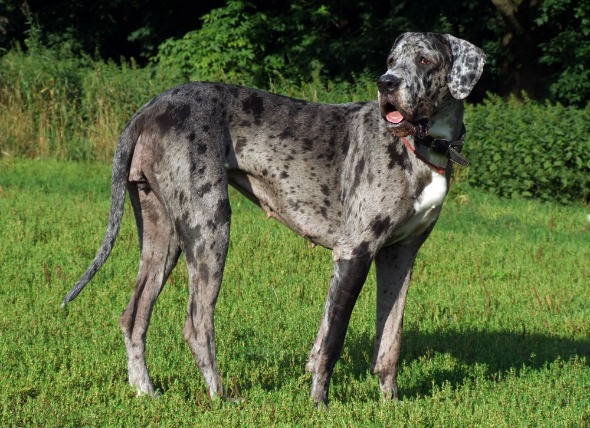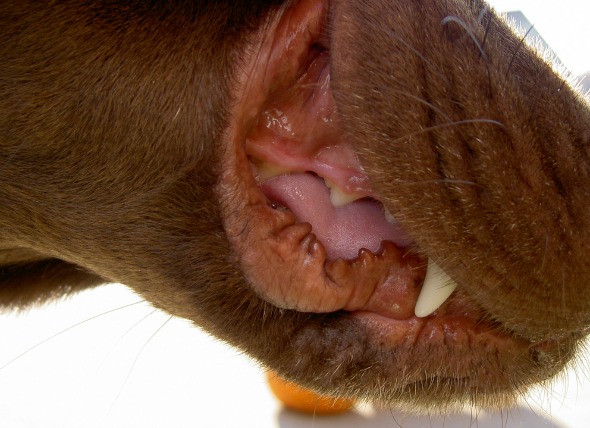If your dog has been diagnosed with heart disease there are a number of ways that the vet might treat it. This is usually through a combination of drugs, diet and exercise.
Medicine
One of the consequences of heart failure is fluid retention which in turn places even more pressure on the heart. Vets will quite often treat this fluid retention with a diuretic- a drug which helps their body to get rid of any excess fluid. Dogs on diuretics usually drink and urinate more than usual.
To help the heart cope, vets also often prescribe a group of drugs known as ACE inhibitors. These work in a combination of ways including increasing the diameter of the blood vessels throughout the body so that the heart does not have to work so hard. They also decrease the heart rate so that the remaining strength of the heart is preserved. Side effects include vomiting and lack of appetite, but these can usually be addressed by altering the dosage. Anti-arrhythmics are given to correct an abnormal heart beat.
When these drugs cannot cope, a type of drug called positive ionotrophs are sometimes used. These are only ever used for a short time and under vet supervision as they can have extreme side effects. When the heart muscles begin to fail, inodilators directly stimulate the heart giving more strength to the heart muscles. Dogs receiving diuretics together with this group of drugs have been shown to live nearly a year longer than those on diuretics alone.
Diet
It is important that your dog’s weight is kept at its optimal level and that they are fed a good quality dog food. Do not feed table scraps and try to eliminate �treats’ in the form of biscuits or human food. Just like in humans, being overweight puts extra strain on your pet.
As many dogs with heart disease suffer from fluid retention, vets often recommend a diet with a low sodium content. This also holds for any snacks that you may give your dog which should all have a low salt content.
There are also some supplements which some vets believe may help such as omega 3 fatty acids, co-enzyme Q, Taurine and carnatine which are all thought to have some benefits.
Exercise
There is often a lot of extra stress on the heart of a dog with heart disease so it is important that any exercise is given under consultation with your vet. Initially a vet may suggest complete rest in their dog bed, however once drug therapy has started to work, it's likely that your vet will recommend a return to normal or near-normal exercise, as it remains important to promote good circulation and exercise the heart.
Once you start exercising your dog you should start out gradually and make sure that your dog does not get to the point where they are panting or breathing heavily as this will elevate their heart rate. Several, regular short walks are ideal to keep your dog physically and mentally active.
Although unfortunately normally fatal, with the correct regime hopefully your dog should be able to extend their life for a number of months or even years.

 Toxoplasmosis in Dogs
Toxoplasma gondii Infection in Dogs
Toxoplasmosis
Toxoplasmosis in Dogs
Toxoplasma gondii Infection in Dogs
Toxoplasmosis
 Parvo in Dogs
Canine Parvovirus Infection in Dogs
The canine pa
Parvo in Dogs
Canine Parvovirus Infection in Dogs
The canine pa
 Fluid in the Lungs in Dogs
Pulmonary Edema in Dogs
Pulmonary edema is identi
Fluid in the Lungs in Dogs
Pulmonary Edema in Dogs
Pulmonary edema is identi
 Skin Tumor (Histiocytoma) in Dogs
Histiocytoma in Dogs
A histiocytoma is a benign s
Skin Tumor (Histiocytoma) in Dogs
Histiocytoma in Dogs
A histiocytoma is a benign s
 Swollen Gums in Dogs
Gingivitis in Dogs
Gingivitis is a reversible inf
Swollen Gums in Dogs
Gingivitis in Dogs
Gingivitis is a reversible inf